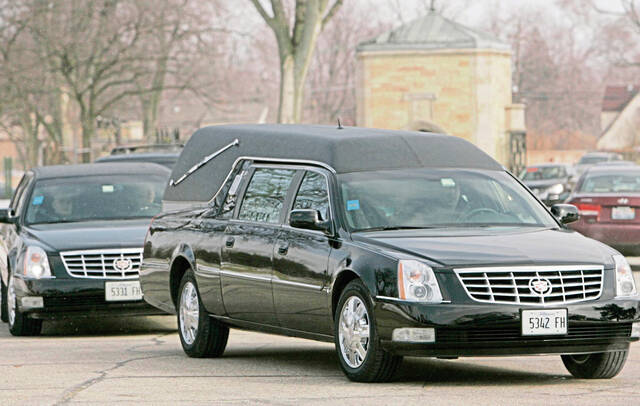https://mirror.triblive.com/local/westmoreland/westmoreland-county-passes-1000-covid-related-deaths-since-pandemic-began/
Westmoreland County passes 1,000 covid-related deaths since pandemic began

An ominous mark is here: 1,000 covid-related deaths in Westmoreland County, making it the ninth county in Pennsylvania to reach four digits.
Two deaths reported Monday pushed the county to 1,001 lives lost, according to figures from the state Department of Health. Of those, 400 deaths occurred in nursing homes. On Tuesday, the state reported six additional covid-related deaths, bringing Westmoreland’s total to 1,007.
Over the past 21 months, the loss of so many has taken a toll not only on their loved ones but others in the community. Roman Catholic Diocese of Greensburg Bishop Larry Kulick said he has heard from dozens of parishioners about how a covid death has impacted their family structure. The counseling and support have taken an emotional toll on priests and lay staff, he said.
So has a covid death of one of their own: the Rev. Thomas A. Federline, 72, of Mt. Pleasant, who died Nov. 8.
“The death of Father Tom was actually something that hit me as a bishop,” Kulick said, recalling several hospital visits in which Federline appeared to be improving.
The same toll has hit the Westmoreland County Coroner’s Office, which has handled 560 covid deaths since March 2020, Coroner Ken Bacha said. Deputy coroners contended with a 21% increase in caseload from 2019 to 2020 as a result of covid-related deaths.
“We survived,” he said. “Mentally, it’s a strain on them.”
The coroner’s office investigates deaths that occur within the county. The state Department of Health bases its data on residential addresses rather than place of death.
The first covid-related death of a Westmoreland County resident was reported April 8, 2020, according to the state health department. Eight months later, in December 2020, the county experienced its worst month, with 234 deaths reported.
This September saw 45 people die after contracting covid, compared with six in September 2020. In October, 68 people succumbed, compared with 62 in October 2020.
Last month at least 81 people died of covid-related illness, whereas one year ago, there were 134 deaths in November. Through Tuesday, five deaths have been reported in December, and the pace appears to be slowing.
There have been 27 covid-related deaths of Westmoreland residents reported in the past seven days, compared to 43 reported in the same period one year ago.
Excela Health officials, who declined to comment for this story, have reported in recent months that the majority of hospitalized covid patients were not fully vaccinated. A little more than half of Westmoreland residents are fully immunized, according to state figures.
Dr. Amesh Adalja, Pittsburgh-based infectious disease expert and senior scholar at the Johns Hopkins Center for Health Security, said it’s the same story in other similarly situated counties throughout the region. If there were an increase in vaccinations, covid would still exist but hospitals would see a more manageable infection rate.
“These deaths are preventable,” he said. “This is a vaccine-preventable disease.”
In Westmoreland, which has a population of about 350,000, about 288 people per 100,000 have died. Next door in Allegheny, where the population is 1.2 million, about 208 people per 100,000 have died.
Adalja was not surprised to learn that Westmoreland’s death rate is higher than that of Allegheny.
Allegheny County hit 1,000 deaths Jan. 5 and 2,000 followed July 28, totaling 2,526 currently, according to state figures. On Tuesday, Pennsylvania surpassed 34,000 covid-related deaths; its tally now stands at 34,107.
In Westmoreland County, Kulick said Federline’s death was the first of an active priest in the diocese in the past 10 to 15 years. During memorial services for him this weekend, Kulick said he continued to hear from parishioners mourning his death that their own family has suffered a loss from covid. An increase in funerals, not all of which are connected to covid, during the past couple months has left church staff busy.
“I’m so grateful to the priests and our lay staff in our parishes,” Kulick said.
In response to the pandemic, more than 2,000 volunteers within the diocese stepped up, creating ways to get meals, clothing and groceries to those impacted by covid. Nearly 15,000 people were helped by parishes providing financial assistance or donated items to those negatively impacted by the virus.
There is no escape from death at the coroner’s office, but Bacha said he advised staff members to work from home as much as possible when the pandemic first started. They since have returned to the office.
“We prepared for the worst years ago,” he said. “We were already geared up with cooler space” and personal protective equipment.
Bacha said he believes his office may have helped save lives by keeping tabs locally on personal care facilities seeing a lot of deaths and directing help, such as protective equipment and manpower, to those locations.
Digital content producers Chris Pastrick and Mike Palm contributed to this report.
Copyright ©2026— Trib Total Media, LLC (TribLIVE.com)
